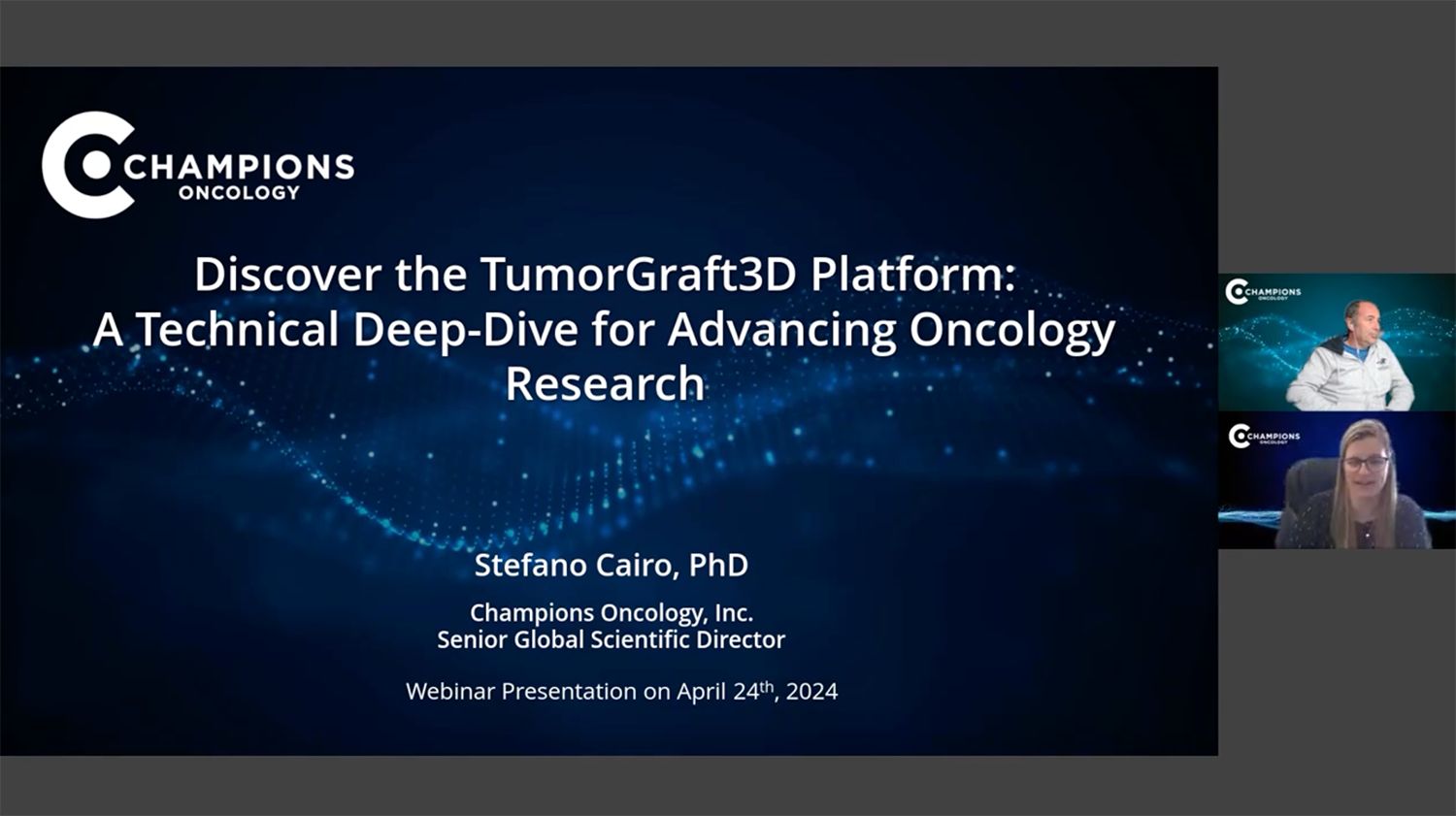On Demand Webinar

Organoids are 3D in vitro models that recapitulate the structural and functional complexity of the healthy or diseased tissue of origin. The use of organoids represents a step forward in basic and applied research, as it supports and accelerates the investigation of fundamental mechanistic properties of human tissues, such as development, regeneration, and repair, and provides a groundbreaking tool to support drug discovery and personalized medicine by capturing patient specificity while recapitulating in vivo tissue organization and functions in vitro, overcoming conventional 2D cultures and animal models limitations.
Champions Oncology has leveraged a biobank of 1,500+ TumorGraft patient-derived xenograft (PDX) models and 100+ patient primary samples to generate a versatile 3D platform to enhance drug discovery by coupling the assessment of patients’ heterogeneity with the time and cost-effectiveness of an in vitro assay.
Join us for a webinar that provides a thorough analysis of Champions' revolutionary TumorGraft3D platform, an ex vivo multiclonal 3D organ-like tumor culture assay derived from our industry-leading clinically relevant patient-derived xenograft (PDX) models.
Key Topics:
- Gain comprehensive insights into the TumorGraft3D platform and its robust capabilities
- Discover specific readouts including cytotoxicity, flow cytometry, high-content imaging, DRUGseq, and luciferase-tagged models for superior research outcomes
- Understand the applications of the platform to refine your preclinical programs
Meet Our Presenter:
 Stefano Cairo, PhD, Sr. Global Scientific Director at Champions Oncology
Stefano Cairo, PhD, Sr. Global Scientific Director at Champions Oncology
Stefano Cairo, PhD has extensive experience in the field of oncology and rare diseases. Stefano is currently serving as the Senior Global Scientific Director at Champions Oncology, Inc. Prior to this, they held the position of Head of Research and Development at XenTech, where they led multiple projects focused on molecular and pharmaceutical characterization of preclinical models and establishing a preclinical cohort for pediatric liver cancer. Stefano also worked as a Researcher at the University of Ferrara and as a Post-doctoral fellow at Institut Pasteur, where they specialized in the molecular and functional characterization of hepatoblastoma. Stefano began their career as a PhD student and post-doc at Tigem, focusing on the identification and functional characterization of genes related to rare human diseases and cancer.
Stefano Cairo, PhD, began their education in 1985 at Liceo Scientifico Bertrand Russell in Italy, where they obtained their High School Diploma in an unspecified field of study. Stefano then pursued their undergraduate studies in Biology at Università degli Studi di Milano from 1990 to 1996, earning a Master of Arts (MA) degree. Continuing their academic journey, they attended The Open University from 2001 to 2004, specializing in Biology with a focus on human genetics, culminating in the completion of a Doctor of Philosophy (PhD) degree in this field.
